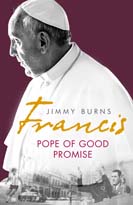Watching the England-Italy quarter final yesterday Spanish coach Vicente Del Bosque might well feel tempted to feel vindicated in his defence of La Roja’s performance in this tournament so far. But Del Bosque is a wise man, who guards against complacency while knowing the importance as well as limitations of self-belief of La Roja. The game was played at its most physical-the soccer ‘con cojones’ which the first English pioneers brought to the Rio Tinto mines near Huelva and the port of Bilbao the Basque country, and which became synonymous with the Spanish game as approved by General Franco. This is was what Spaniards turned into their own expression of virility, a tough and uncompromising as Wayne Rooney’s . They called it La Furia– the Fury.
Yesterday’s England-Italy had various ingredients displayed by both sides —courage, resilience, determination— that bordered on the heroic- even if in the end there was no physical annihilation of one side by the other, only an anti-climatic victory by penalties which is a poor form of justice.
It was a game not distinguished by flair or creativity: back-kicks were way off target, there was lack of fluidity in mid-field, and neither side’s possession or passing was particularly inspired. No single player stood out for me, although English goalkeeper Hart was a rock in defence – until the penalties.
To watch all this aggression resolved in the end not with a bang but with a whimper inevitably provokes a reflection on its antithesis — the technical, patient, game which the Spanish team have demonstrated in this tournament and for which Del Bosque has received some criticism because it has not exactly set the tournament on fire.
This criticism has been based on the view that Spain’s game, for all technique, has lacked resolution in overpowering, and destroying the enemy. It is a criticism that Del Bosque and his players find difficult to understand given statistics that show that La Roja have outperformed every other team in Euro 2012 on every measure from number of successful passes to number of goals.
Nevertheless , with the exception of the match against the Republic of Ireland, Del Bosque’s team have failed to entertain us-setting aside moments of brilliance, the poetry of the ball has not flowed with its characteristic motion, the organisation of the team has been well short of perfect choreography.
As I note in my latest book on Spanish soccer, General Franco encouraged the national stereotype as mythologised in the literary figure of Don Quixote, the incarnation of the spirit of non-compromise , with its hopelessness and failure forgotten beside his nobility of purpose. And yet for all its aggression, Spain in those years failed to conquer-instead it underachieved. After its victory over the Soviet Union in the European Nations Cup final in 1964, Spain had to wait until the Euro championships in 2008 before winning any other major soccer tournament. By then, drawing on the legacy of the South Americans and the Dutch, Spain had embraced tiqui-taca, the style that prioritized passing, patience, and possession above all else.
But let us remember too that that EURO 2008 was won by Spain in the final against Germany with a goal by Fernando Torres that epitomized the artistry and passion Spain had stood for from the outset of the tournament. As I write in my book La Roja, ‘it was the moment when the Spanish squad’s brightest young matador dispatched an ageing bull that had lost its fire and nobility. The Germans tried to resist a team that had passed the ball like gods. But this was a plodding veterans’ Germany well past its sell-by date that in the end conceded the winning goal to a much better team, full of promise.”
After Sunday’s game, the likelihood is that we are heading towards a Spain-German Euro final. Del Bosque told me once that he knew La Roja were on there way to becoming World champions when they lost their fear. They went and beat a rejuvenated German team in the semifinals of 2010.
I believe La Roja can set a new record by winning Euro 2012. But it needs to lift itself , and play with the spirited beauty of worthy champions.
(Cross-posted from www.jimmy-burns.com)
NOTE: Next Wednesday, June 27, at 12:30 pm, veteran journalist Jimmy Burns will be at El Centro Español in New York City to discuss these headlines and the rich stories behind them. Burns spent 30 years as a senior writer for the Financial Times and is the author of the new book La Roja: How Soccer Conquered Spain and How Spanish Soccer Conquered the World.
Joining him will be Howler editor George Quraishi. They’ll discuss the remarkable history of soccer in Spain, from its early beginnings through the Franco years and the rise of FC Barcelona and Real Madrid, and on to the present day, when Spain is champion of the world.
The event is free and will be followed by a screening of the Euro 12 semi-final between Portugal and Spain!
ADDRESS: Wednesday, June 27
12:30 pm
239 West 14th Street
New York, NY 10011

